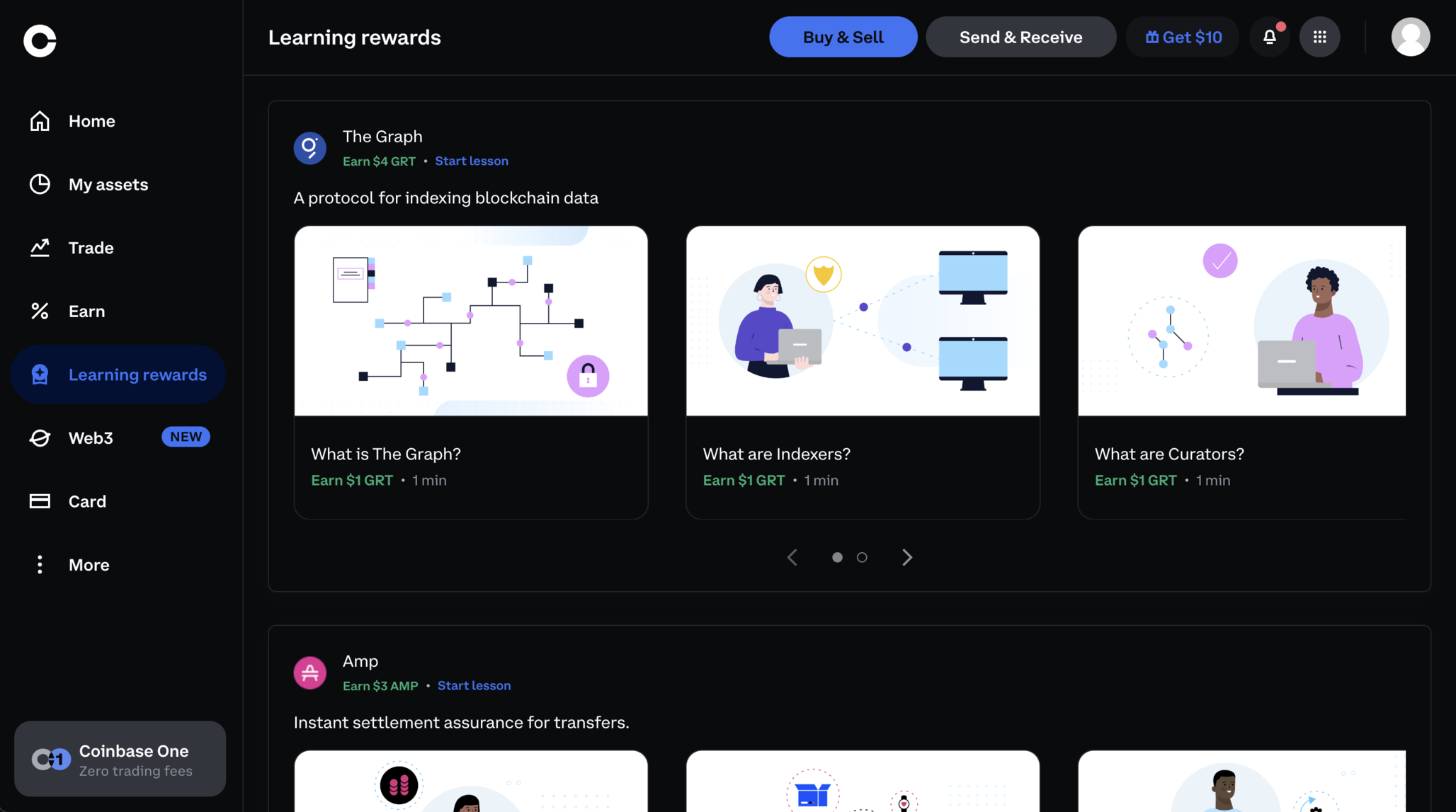Table of Contents
- Introduction
- Defining Social Proof
- The Psychology Behind Social Proof
- Types of Social Proof
- Importance of Social Proof in B2B Marketing
- Effective Ways to Leverage Social Proof
- Measuring the Impact of Social Proof
- Challenges and Considerations
- Best Practices for Implementing Social Proof
- The Future of Social Proof in B2B Marketing
- Conclusion
Introduction
In the world of B2B growth marketing, understanding and leveraging social proof can be a game-changer for your strategy. This powerful psychological phenomenon has the potential to significantly influence decision-making processes, build trust, and drive conversions. As a B2B growth marketer, harnessing the power of social proof can help you create more effective campaigns, establish credibility, and ultimately accelerate your company's growth.
This comprehensive guide will delve deep into the concept of social proof, exploring its psychological foundations, various types, and practical applications in B2B marketing. We'll also discuss how to measure its impact, overcome potential challenges, and implement best practices to maximize its effectiveness in your marketing efforts.
Defining Social Proof
Social proof is a psychological and social phenomenon where people look to the actions and behaviors of others to guide their own decisions and actions, especially in uncertain or ambiguous situations. In essence, it's the idea that if others are doing something, it must be the correct thing to do.
In the context of B2B marketing, social proof refers to the various ways businesses can demonstrate their credibility, expertise, and value through the experiences and endorsements of others. This can include customer testimonials, case studies, industry awards, expert opinions, and usage statistics, among other forms of validation.
The concept of social proof is rooted in the human tendency to seek safety in numbers and conform to social norms. By showcasing that others have had positive experiences with a product or service, businesses can reduce perceived risk and increase trust among potential customers.
The Psychology Behind Social Proof
To truly understand and effectively utilize social proof in your B2B marketing strategies, it's crucial to grasp the psychological principles that make it so powerful:
Conformity: People have a natural inclination to align their beliefs and behaviors with those of others, especially in unfamiliar situations. This tendency helps individuals feel secure in their decisions and reduces cognitive dissonance.
Informational Influence: In complex or uncertain scenarios, people often look to others for guidance. This is particularly relevant in B2B contexts where decisions can have significant implications for a company.
Social Validation: Humans seek approval and validation from their peers. Seeing others endorse a product or service can provide this validation and make individuals feel more confident in their choices.
Risk Reduction: B2B purchases often involve substantial investments and potential risks. Social proof helps mitigate perceived risks by demonstrating that others have successfully used and benefited from the product or service.
Heuristic Decision-Making: In today's fast-paced business environment, decision-makers often rely on mental shortcuts or heuristics to make choices. Social proof serves as one such heuristic, simplifying the decision-making process.
Authority Bias: People tend to give more weight to the opinions and actions of those perceived as authorities or experts in a given field. This is why expert endorsements and industry awards can be particularly effective forms of social proof.
Understanding these psychological underpinnings allows B2B marketers to craft more compelling and persuasive social proof strategies that resonate with their target audience's decision-making processes.
Types of Social Proof
Social proof can take many forms, each with its own strengths and applications in B2B marketing. Here are the main types of social proof you should be aware of:
Customer Testimonials: Written or video statements from satisfied customers sharing their positive experiences with your product or service.
Case Studies: In-depth analyses of how your solution solved specific problems for clients, often including quantifiable results.
User Statistics: Numbers showcasing your customer base, usage data, or other relevant metrics that demonstrate widespread adoption.
Expert Endorsements: Recommendations or approvals from industry thought leaders, analysts, or other respected figures in your field.
Certifications and Awards: Recognition from reputable organizations that validate your expertise, quality, or innovation.
Client Logos: Visual representation of notable companies that use your product or service.
Social Media Proof: Engagement metrics, follower counts, and user-generated content that show active community involvement.
Media Mentions: Coverage in respected industry publications or mainstream media outlets.
Trust Badges: Symbols or seals from recognized authorities that vouch for your security, quality, or ethical standards.
User Reviews: Aggregated ratings and feedback from customers on various platforms.
Partnership Announcements: Collaborations with other respected brands or organizations in your industry.
Live Data: Real-time statistics or updates showing current user activity or recent transactions.
Each type of social proof can be particularly effective in different scenarios and for different audience segments. A well-rounded B2B marketing strategy often incorporates multiple forms of social proof to create a comprehensive and convincing narrative.
Importance of Social Proof in B2B Marketing
In the B2B landscape, where decisions often involve multiple stakeholders and significant investments, social proof plays a crucial role in the marketing and sales process. Here's why it's particularly important:
Trust Building: B2B relationships are built on trust. Social proof provides tangible evidence of your reliability and effectiveness, helping to establish and reinforce trust with potential clients.
Risk Mitigation: B2B purchases often come with high stakes. By showcasing successful implementations and satisfied customers, you help mitigate the perceived risk associated with adopting your solution.
Differentiation: In competitive markets, social proof can be a key differentiator. It provides concrete reasons why your offering stands out from alternatives.
Shortening Sales Cycles: By addressing common concerns and showcasing value upfront through social proof, you can accelerate the decision-making process and reduce the length of your sales cycle.
Enhancing Credibility: Especially for newer or less-known companies, social proof can quickly establish credibility and position you as a trusted player in your industry.
Supporting Complex Decision-Making: B2B decisions often involve multiple stakeholders. Social proof can provide compelling evidence to help champions within an organization make a case for your solution.
Overcoming Skepticism: B2B buyers are often skeptical of marketing claims. Social proof offers third-party validation that can overcome this initial skepticism.
Demonstrating ROI: Through case studies and testimonials, you can clearly illustrate the return on investment that clients can expect, making it easier to justify the purchase.
Fostering Thought Leadership: By associating your brand with industry experts and respected organizations, you can position your company as a thought leader in your field.
Improving Lead Quality: When prospects see strong social proof, they're more likely to self-qualify, leading to higher-quality leads entering your sales funnel.
By leveraging social proof effectively, B2B marketers can create a powerful narrative that resonates with potential clients, addresses their concerns, and ultimately drives conversions.
Effective Ways to Leverage Social Proof
Now that we understand the importance of social proof in B2B marketing, let's explore some effective strategies for incorporating it into your marketing efforts:
Showcase Customer Success Stories
- Develop detailed case studies that highlight specific challenges, solutions, and quantifiable results.
- Create video testimonials featuring satisfied customers explaining how your product or service has benefited their business.
- Use pull quotes from happy clients throughout your marketing materials and website.
Highlight Industry Recognition
- Display awards and certifications prominently on your website and in marketing collateral.
- Include mentions of industry accolades in your email signatures and social media profiles.
- Create dedicated pages or sections on your website to showcase your achievements and recognition.
Leverage Expert Endorsements
- Collaborate with industry thought leaders for co-created content or webinars.
- Seek out and feature expert reviews of your product or service.
- Participate in industry panels and conferences to build credibility and gather endorsements.
Utilize User-Generated Content
- Encourage customers to share their experiences on social media and feature this content on your platforms.
- Create a hashtag campaign to collect and showcase user stories and testimonials.
- Implement a customer advocacy program to nurture and highlight your most enthusiastic users.
Implement Social Proof in Your Sales Process
- Equip your sales team with relevant case studies and testimonials for different industries and use cases.
- Create a reference program where prospects can speak directly with satisfied customers.
- Use social proof in your sales presentations and proposals to address common objections and demonstrate value.
Optimize Your Website for Social Proof
- Include a scrolling banner of client logos on your homepage.
- Create a dedicated testimonials or case studies page that's easily accessible from your main navigation.
- Use trust badges and security seals to address concerns about data privacy and security.
Leverage Social Media for Social Proof
- Share customer success stories and testimonials across your social media channels.
- Highlight positive mentions and reviews from customers on your social profiles.
- Use social media advertising to amplify your best social proof content to a wider audience.
Incorporate Social Proof in Content Marketing
- Include relevant statistics and customer quotes in your blog posts and whitepapers.
- Create round-up posts featuring expert opinions that align with your product or service offerings.
- Develop case study-based content that provides in-depth insights into customer successes.
Use Social Proof in Email Marketing
- Include customer testimonials or success metrics in your email signatures.
- Create dedicated email campaigns showcasing recent wins or notable new clients.
- Use social proof elements in your nurture email sequences to build trust over time.
Implement Live Social Proof
- Use tools that show real-time user activity on your website (e.g., recent purchases or sign-ups).
- Display live chat widgets showing current response times to demonstrate attentive customer service.
- Showcase real-time social media engagement metrics to highlight active community involvement.
By strategically incorporating these social proof elements across your marketing efforts, you can create a compelling narrative that builds trust, addresses concerns, and ultimately drives more B2B conversions.
Measuring the Impact of Social Proof
To ensure that your social proof strategies are effective and to continually optimize your approach, it's crucial to measure their impact. Here are some key metrics and methods for evaluating the effectiveness of your social proof efforts:
Conversion Rate Analysis
- Compare conversion rates on pages with and without social proof elements.
- A/B test different types of social proof to determine which are most effective for your audience.
Time on Page and Bounce Rate
- Monitor how social proof affects engagement metrics like time on page and bounce rate.
- Analyze if pages with social proof keep visitors engaged for longer periods.
Click-Through Rates (CTR)
- Measure CTR for calls-to-action (CTAs) that are accompanied by social proof elements.
- Compare email open and click-through rates for campaigns that heavily feature social proof versus those that don't.
Lead Quality Metrics
- Assess whether leads generated from campaigns or pages with social proof are of higher quality (e.g., more likely to convert to customers).
- Track the progression of leads exposed to social proof through your sales funnel.
Sales Cycle Length
- Monitor if the incorporation of social proof in your sales process reduces the average length of your sales cycle.
Customer Surveys and Feedback
- Conduct surveys to understand how social proof influences your customers' decision-making process.
- Gather qualitative feedback on which types of social proof are most impactful.
Social Media Engagement
- Track engagement metrics (likes, shares, comments) on social proof content shared on your social media channels.
- Monitor increases in follower count or brand mentions that may be attributed to social proof efforts.
Website Heat Maps and User Recordings
- Use tools like heat maps to see how visitors interact with social proof elements on your website.
- Analyze user recordings to understand how social proof influences user behavior and navigation patterns.
Return on Investment (ROI)
- Calculate the ROI of specific social proof initiatives by comparing the cost of implementation to the resulting increase in conversions or revenue.
Brand Sentiment Analysis
- Use social listening tools to monitor changes in brand sentiment that may be influenced by your social proof strategies.
Referral Traffic
- Track increases in referral traffic from sources featured in your social proof (e.g., case studies, partner websites).
Customer Lifetime Value (CLV)
- Assess whether customers acquired through campaigns heavy on social proof have a higher CLV.
By regularly analyzing these metrics, you can gain valuable insights into the effectiveness of your social proof strategies and make data-driven decisions to optimize your approach. Remember that the impact of social proof can be both direct (e.g., immediate conversions) and indirect (e.g., improved brand perception over time), so it's important to consider both short-term and long-term metrics in your evaluation.
Challenges and Considerations
While social proof is a powerful tool in B2B marketing, it's important to be aware of potential challenges and considerations:
Authenticity Concerns
- Ensure all testimonials and case studies are genuine and verifiable.
- Be transparent about any incentives offered for reviews or testimonials.
Relevance to Target Audience
- Tailor social proof to specific segments of your audience for maximum impact.
- Ensure featured clients or use cases are relatable to your target market.
Keeping Content Fresh
- Regularly update social proof elements to reflect current clients and recent successes.
- Avoid using outdated statistics or testimonials that may reduce credibility.
Balancing Quantity and Quality
- Focus on high-quality, detailed social proof rather than sheer quantity.
- Curate your social proof to tell a compelling story about your brand and offerings.
Privacy and Confidentiality
- Always obtain proper permissions before using client names or data in your marketing.
- Respect client confidentiality and be prepared to use anonymized case studies when necessary.
Negative Social Proof
- Be prepared to address negative reviews or feedback professionally and constructively.
- Implement a strategy for managing and mitigating the impact of negative social proof.
Overreliance on Social Proof
- Remember that social proof should complement, not replace, other marketing strategies.
- Ensure your core value proposition is strong and clearly communicated.
Cultural Considerations
- Be aware of cultural differences in how social proof is perceived and valued in different markets.
- Adapt your social proof strategies for international audiences when necessary.
Legal and Regulatory Compliance
- Ensure all social proof elements comply with relevant advertising and testimonial regulations.
- Be cautious about making claims or comparisons that could be challenged legally.
Measuring Long-Term Impact
- Develop strategies for assessing the long-term impact of social proof on brand perception and customer loyalty.
- Consider both immediate conversion metrics and longer-term brand health indicators.
By being aware of these challenges and proactively addressing them, you can create a more robust and effective social proof strategy that drives results while maintaining integrity and authenticity.
Best Practices for Implementing Social Proof
To maximize the effectiveness of social proof in your B2B marketing efforts, consider the following best practices:
Diversify Your Social Proof
- Use a mix of different types of social proof to appeal to various aspects of your audience's decision-making process.
- Combine quantitative data (e.g., usage statistics) with qualitative evidence (e.g., testimonials) for a well-rounded approach.
Prioritize Authenticity
- Use real customer stories and genuine testimonials. Authenticity resonates more than polished but artificial content.
- Include specific details and results in case studies to enhance credibility.
Make It Relevant and Targeted
- Tailor social proof to specific industries, company sizes, or use cases that match your target audience.
- Use dynamic content on your website to show the most relevant social proof based on the visitor's profile or behavior.
Strategically Place Social Proof
- Incorporate social proof elements at key decision points in the customer journey, such as pricing pages or sign-up forms.
- Use social proof in retargeting campaigns to reinforce your value proposition to interested prospects.
Keep It Current and Fresh
- Regularly update your social proof content to reflect your latest successes and most current client base.
- Implement a system for routinely collecting and curating new testimonials and case studies.
Leverage Visual Elements
- Use high-quality images and videos to make your social proof more engaging and memorable.
- Create infographics or data visualizations to present statistics and results in a compelling way.
Incorporate Social Proof Across Channels
- Integrate social proof elements consistently across your website, social media, email marketing, and sales materials.
- Use social proof in your paid advertising campaigns to increase click-through rates and conversions.
Encourage and Facilitate User-Generated Content
- Develop programs that incentivize customers to share their experiences and success stories.
- Create easy-to-use platforms or processes for customers to submit testimonials or reviews.
Quantify Results Whenever Possible
- Use specific numbers and percentages to demonstrate the impact of your product or service.
- Highlight before-and-after scenarios in case studies to clearly illustrate the value you provide.
Address Different Stages of the Buyer's Journey
- Tailor your social proof to address concerns and questions typical at each stage of the purchasing process.
- Use different types of social proof for awareness, consideration, and decision stages.
Ensure Mobile Responsiveness
- Optimize your social proof elements for mobile devices to ensure they're easily viewable on all screens.
- Consider how different types of social proof translate to mobile experiences.
Test and Optimize
- Continuously A/B test different formats, placements, and types of social proof to identify what resonates best with your audience.
- Use analytics to track the performance of your social proof elements and refine your strategy based on data.
Combine Social Proof with Storytelling
- Craft compelling narratives around your social proof to make it more engaging and memorable.
- Use customer success stories to illustrate not just results, but the journey and challenges overcome.
Leverage Social Proof in Sales Enablement
- Equip your sales team with a library of easily accessible social proof materials tailored to different scenarios and objections.
- Train your sales team on how to effectively incorporate social proof into their conversations and presentations.
Be Transparent and Ethical
- Always obtain proper permissions before using client information or testimonials.
- Be honest about the context of your social proof and avoid any misleading representations.
By following these best practices, you can create a robust social proof strategy that effectively builds trust, credibility, and persuasive power in your B2B marketing efforts. Remember to continually evaluate and refine your approach based on performance data and feedback to ensure ongoing effectiveness.
The Future of Social Proof in B2B Marketing
As technology evolves and buyer behaviors change, the landscape of social proof in B2B marketing is likely to shift. Here are some trends and predictions for the future of social proof:
Increased Personalization
- AI and machine learning will enable hyper-personalized social proof, showing prospects the most relevant testimonials and case studies based on their specific profile and needs.
Interactive and Immersive Experiences
- Virtual and augmented reality technologies may allow for more immersive case study experiences, letting prospects "see" the impact of a product or service in action.
Real-Time Social Proof
- Live data feeds showing current user activity, recent purchases, or real-time results will become more prevalent, providing immediate and dynamic social proof.
Integration with Customer Data Platforms
- Social proof will be more tightly integrated with customer data platforms, allowing for more sophisticated targeting and analysis of its impact throughout the customer lifecycle.
User-Generated Content Platforms
- Dedicated platforms for B2B customers to share experiences and connect with peers may emerge, creating new channels for authentic social proof.
Video Testimonials and Case Studies
- As video content continues to dominate, expect an increase in high-quality, professionally produced video testimonials and case study narratives.
Blockchain for Verification
- Blockchain technology may be used to verify the authenticity of testimonials and reviews, addressing concerns about fake or manipulated social proof.
Voice and Conversational AI
- As voice search and AI assistants become more prevalent in B2B research, social proof will need to be optimized for these platforms.
Micro-Moments of Social Proof
- Brief, impactful snippets of social proof will be strategically placed throughout the digital experience to influence decisions at key micro-moments.
Predictive Social Proof
- AI-driven systems may predict which types of social proof will be most effective for specific prospects based on their behavior and profile.
Cross-Platform Social Proof Integration
- Seamless integration of social proof across various platforms and devices will create a consistent and reinforcing message throughout the buyer's journey.
Employee Advocacy as Social Proof
- Increased focus on showcasing employee expertise and satisfaction as a form of social proof, particularly in service-based industries.
Sustainability and Social Responsibility Proof
- Growing emphasis on demonstrating a company's commitment to sustainability and social responsibility through verifiable metrics and third-party certifications.
AI-Generated Insights from Social Proof
- AI analysis of customer testimonials and case studies to extract deeper insights and trends that can inform product development and marketing strategies.
Regulatory Changes
- Evolving regulations around data privacy and advertising may impact how social proof can be collected and presented, requiring adaptable strategies.
As these trends emerge, B2B marketers will need to stay agile, continuously experimenting with new forms of social proof while ensuring they maintain authenticity and relevance. The core principle of social proof – leveraging the experiences and opinions of others to influence decisions – will remain powerful, but the methods of delivery and integration will likely become more sophisticated and tailored to the evolving B2B landscape.
Conclusion
Social proof has become an indispensable tool in the B2B marketer's arsenal, offering a powerful way to build trust, credibility, and persuasive influence. By leveraging various forms of social proof – from customer testimonials and case studies to expert endorsements and usage statistics – B2B companies can effectively address the complex decision-making processes of their prospects and accelerate their path to purchase.
The key to success lies in authenticity, relevance, and strategic implementation. By carefully curating and presenting social proof that resonates with your target audience, you can create a compelling narrative that not only showcases your product or service but also demonstrates its real-world impact and value.
As we look to the future, the role of social proof in B2B marketing is likely to evolve, becoming more personalized, interactive, and data-driven. Emerging technologies will offer new ways to collect, verify, and present social proof, while changing buyer behaviors will require adaptable strategies.
Ultimately, the most successful B2B marketers will be those who can effectively blend the timeless psychological principles of social proof with cutting-edge technologies and a deep understanding of their audience's needs and decision-making processes. By doing so, they can create powerful, persuasive marketing strategies that drive growth and establish lasting relationships with their customers.
Remember, social proof is not just about showcasing success – it's about building a community of satisfied customers and positioning your brand as a trusted leader in your industry. When implemented thoughtfully and ethically, social proof can be the cornerstone of a robust B2B marketing strategy that drives long-term success and sustainable growth.







